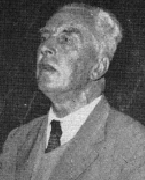Lebanon Expression of History
Here is a seductive theme. It drives the historian to travel the entire course of history since the dawn of civilization.
The content of the terms must be specified:
a. Lebanon, in the geographical sense, is not an expression of history; it is an expression of nature. The physical traits of Lebanon are at the very heart of its human fortunes.
Sea, mountain, snow and forests: these physical attributes of Lebanon do not surprise the inhabitants of the other shores of the Mediterranean. The same natural phenomena characterize, for instance, Greece, Italy, Morocco, Catalonia and Provence. On the contrary, for the inhabitants of Egypt, Iraq and especially Saudi Arabia, Lebanon is an exceptional country, nearly miraculous.
I would also like to mention how impressed I personally was, on March 17 this year, by the spectacle of snow of anti-Lebanon and Lebanon, which suddenly appeared from the desert at the final stage of travel by air from Karachi to Beirut.
b. But when we take the word ‘Lebanon’ in its human sense, Lebanon is also an expression of history. Lebanon, taken in this particular sense, is the product of all those human beings who have settled here over the centuries.
..By exploring the theme before us, I shall postulate that the human history of Lebanon has constituted a social and cultural unity from the origins of civilization until current times. Certainly, this assumption does not match the historical truth. The actual Lebanese are not the successors of the Phoenicians in the strict sense of the word. The Phoenicians were sailors who clung to the coast. For them, the desirable physical refuge was the island not the mountain. Tyre, Arwad, Lilybaeum; the high-rise buildings of Lilybaeum; they survive in modern Hadramaut. They did not annex the mountain until a rather late era of the Phoenician history. On the contrary, the actual Lebanese are mountaineers who, until 1920, had not been able to incorporate ports and coastal cities in their domain except precariously and fleetingly... However, ancient Phoenicians and modern Lebanese share common habits and capacities of high significance.
..Please note that this period, during which the Phoenician masters of the Mediterranean coast of the Syrian isthmus achieved great things, was also a period during which the region known today as the Middle East was a ‘Power Vacuum’ (the phrase entered recently into circulation by President Einsenhower in a historical declaration).
..This political rule of ‘Power Vacuum’ seems to offer exceptional commercial advantages in favor of the Syrian isthmus’ inhabitants...
..In general, in the Syrian isthmus, the ‘power vacuum’ regime was a somewhat rare experience. This country, which is too powerful in the economic and cultural spheres, is disastrously weak in political and military spheres. Even an indigenous state that would cover the entirety of Syria, in the largest geographical sense of the word, would have hard times standing up to its neighbors: Egypt, Turkey and Iraq, countries that offer larger bases for imperialist attempts. In the past, Greater Syria was never an independent political unit. The political unity of the Syrian isthmus was never achieved except after the extension of an established empire under which were brought the countries of the region. In the rare event of ‘power vacuum’, the Syrian isthmus will break into a mosaic of small discordant states. Look at the current political map. It is typical...
Currently, the Arab countries have become the object of a conflict between the US and Russia in order to determine the boundary, in the Levant, between these two global empires. Will this boundary coincide with the borders, in the north, of Turkey and Iran? Or will it coincide with the boundary between the Crusaders and the Muslims? Obviously, this question is of radical importance for the future of Lebanon.








Leave A Comment